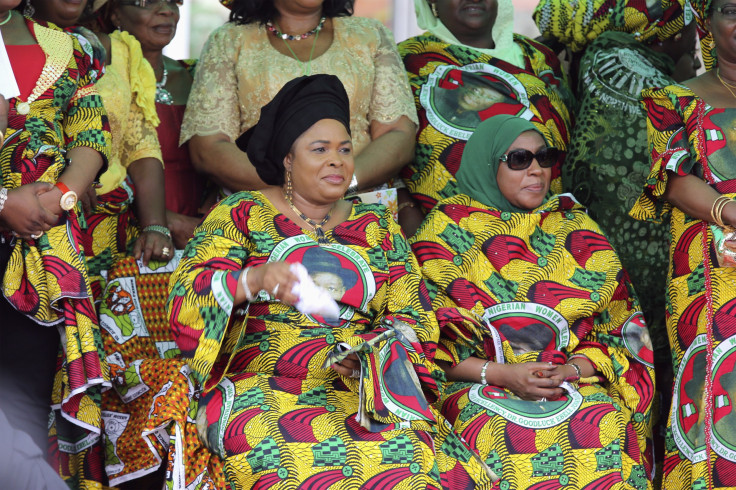The Seventh Governor: Nigeria's Ruling Party Falls Apart As Dissenting Officials Join Forces

When six angry governors stormed out of a convention in Nigeria's capital city of Abuja on Saturday, it marked a worrisome turn of events for the Peoples Democratic Party, or PDP, which has won every national election since a civilian government was established in 1998.
At the convention, disagreements over the election of officials to the National Working Committee angered some attendees, prompting the sudden departure of the governors and former vice president Atiku Abubakar. The group has since formed a new political faction, weakening the legitimacy of the PDP and endangering President Goodluck Jonathan's supposed plans to run for another term in 2015.
The governors all hailed from northern states, and their departure was partly rooted in long-running tensions between the country's majority-Muslim, under-developed northern regions and the majority-Christian, densely-populated south. But a seventh governor joined the faction shortly after the walk-out, adding a new twist to the ongoing drama.
Rotimi Amaechi governs Rivers State, which is located along Nigeria's southern coastline. The state is at the heart of oil production in the country, making it immensely important to the national economy -- hydrocarbon revenues make up 95 percent of export income and more than half of the country's gross domestic product, or GDP.
The relationship between Amaechi and the administration is a prickly one. For months, the governor and the president have been on sour terms. Amaechi was recently elected to head the powerful National Governors' Forum, defeating Jonathan's preferred candidate. Patience Jonathan, Nigeria's first lady, hails from Rivers State and has personally butted heads with the governor over his development plans. Now, Amaechi has joined the as-yet-unnamed splinter party that may represent one of the biggest political challenges the PDP has ever faced.
"We address you today as leaders of the PDP, who are worried by the increasing repression, restrictions of freedom of association, arbitrary suspension of members," said a statement from the new party. "We consider it a sacred responsibility to save the PDP from the antics of a few desperadoes who ... are bent on hijacking the party for selfish ends."
Indeed, the Jonathan administration has been heavily criticized for failing to turn oil revenues into broad-based growth. More than half of Nigeria's citizens live in poverty, despite the fact that the country boasts the continent's second-largest economy.
Under-development has led to some very serious problems all over the country. In the semi-arid expanses of the north, widespread poverty has strengthened anti-government sentiment and fueled the rise of Boko Haram, a militant Islamist group that has killed thousands of people over the past few years.
And, in the mangrove-shaded swamps of the south, thieves desperate for a cut of the country's oil wealth have been damaging pipelines to siphon off crude. The scale of this problem is massive and it has brought production levels down to 1.9 billion barrels per day, or bpd, this summer -- far below the average 2.5 million bpd that the government budget had predicted for 2013.
Although both problems are rooted in underdevelopment, they are often regarded as separate because they occur hundreds of miles apart. In that context, Amaechi's decision to join the six northern governors in their dissent is significant because it brings two of Nigeria's most pressing issues under one roof.
While the group's statement focuses on the PDP's record of corruption and a general lack of efficacy, there is another issue that has lately been galvanizing the opposition: Jonathan's ambition to run for a second term, which is widely assumed though it has not been formerly announced.
The PDP abides by an unwritten rule whereby the presidency should rotate between a northerner and a southerner every two terms. By 2015, Jonathan will have been in office for a term-and-a-quarter, having first taken his seat in 2010 after the death of his predecessor. He was formally elected in 2011. The president's critics charge that he should step down after this term, having already served for more than one term, while supporters say he is entitled to serve out two full terms should he contest, and win, the 2015 election.
The new party threatens to plunge the PDP even deeper into turmoil. Infighting is nothing new, and the administration has been plagued by corruption for years. Falling oil revenues, violence in the north and persistently high poverty levels have already taken their toll on the PDP's popularity, and the new splinter group could become the straw that breaks the camel's back.
Administration officials have engaged in talks with the defectors, but no progress has been announced since the weekend.
"Consultation is going on at the very highest level of the party," said PDP public relations secretary Olisa Metuh, according PM News Nigeria. "The President, the party`s National Chairman, the Chairman of the Board of Trustee and PDP Governors are meeting on this."
© Copyright IBTimes 2024. All rights reserved.





















